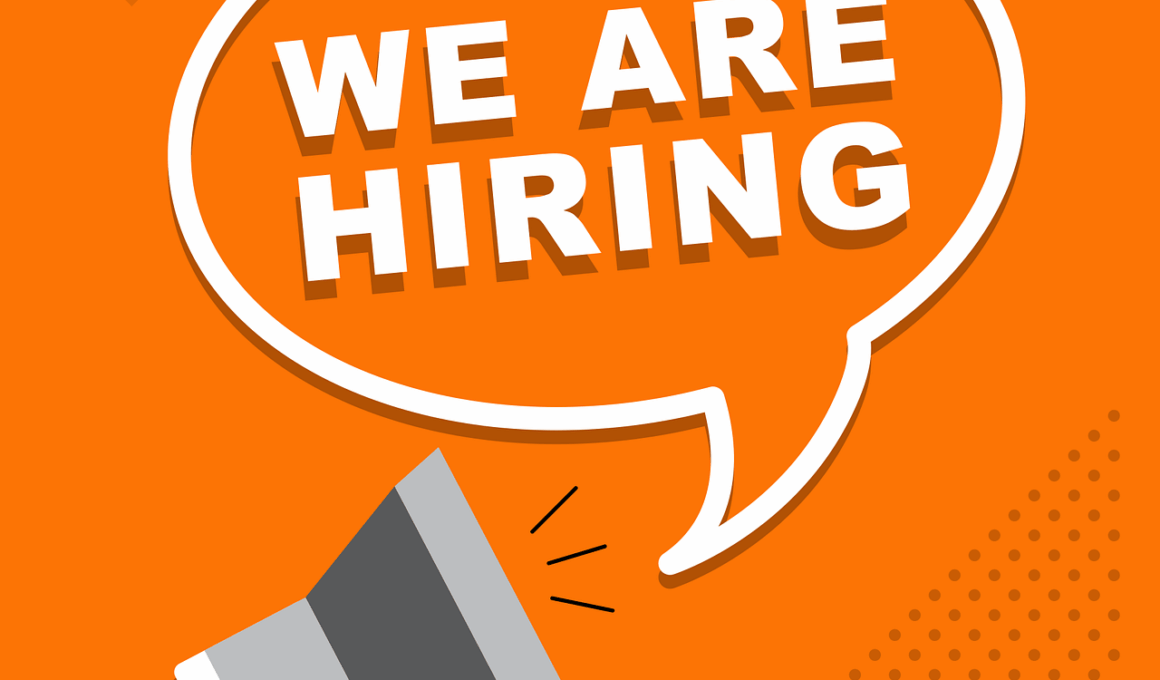The Intersection of HR Analytics and Artificial Intelligence
The integration of Artificial Intelligence (AI) into Human Resources (HR) Analytics is creating revolutionary transformations in workplace management. Organizations are increasingly adopting AI to enhance their HR functions by harnessing data-driven insights. This adoption ensures efficiency, leading organizations to formulate effective strategies for managing their workforce. AI enables HR departments to analyze employee data, significantly improving the recruitment process. This technology automates and optimizes multiple tasks, leading to time and cost savings. Companies can now assess candidates more thoroughly by utilizing algorithms that predict job performance based on collected data. Furthermore, AI enhances employee retention strategies by anticipating turnover risks, allowing companies to intervene proactively. This results in valuable human capital being retained and improved employee satisfaction rates. Additionally, analytics derived from AI assist in measuring employee engagement and performance, contributing to overall business success. Companies are using these insights to foster a more inclusive and productive workplace culture. This synergy of AI and HR analytics not only streamlines processes but also empowers organizations to make informed decisions, ultimately driving them to greater success.
The convergence of AI and HR analytics is also fostering a more personalized employee experience. Through advanced data analytics, organizations can tailor employee training and development programs to individual needs. AI can identify skills gaps and recommend learning opportunities that help employees grow professionally. This personalized approach not only enhances employee satisfaction but also aligns their career aspirations with organizational goals. Furthermore, predictive analytics can assess how well various talent strategies are working, allowing HR teams to adapt swiftly to changing circumstances. They can preemptively adjust recruitment strategies based on market trends and employee feedback. AI-driven tools also enable HR personnel to derive insights from employee feedback, streamlining the process of gathering and analyzing sentiments about the workplace environment. As a result, organizations can create initiatives that foster a positive workplace culture, increasing morale and productivity. Moreover, AI tools for analyzing huge data sets can uncover patterns that a human analyst may overlook, thus informing strategic HR decisions. Consequently, these insights lead to enhanced workforce planning and development, ensuring companies remain competitive and agile in rapidly evolving industries.
Data Privacy and Ethical Considerations
While the merge of AI with HR analytics presents numerous benefits, it also raises critical data privacy and ethical considerations. The implementation of AI systems involves extensive data collection, often encompassing sensitive personal information about employees. Organizations must navigate the intricacies of regulations such as the General Data Protection Regulation (GDPR), which governs how such data is handled. Transparency becomes paramount; businesses must inform employees about data usage and management practices. Without this transparency, organizations risk damaging trust and employee morale. Additionally, biases present in AI algorithms can lead to discriminatory practices inadvertently, emphasizing the need for fairness and inclusivity in AI applications. Thus, organizations are encouraged to perform regular audits on AI systems to ensure they align with ethical standards. HR departments need to collaborate with legal teams to develop policies that protect employee data while maximizing the effectiveness of AI. A strong ethical framework not only safeguards employee trust but also enhances the organization’s reputation as a fair and inclusive employer. As AI continues to evolve, the focus on ethical implementation in HR analytics must remain paramount.
The workforce landscape is continuously evolving, and the implementation of AI within HR analytics is transforming organizational structures effectively. Businesses are recognizing the importance of adapting to new generations of employees who expect technology to enhance their work experience. Integrating AI-driven HR analytics enables a shift from traditional approaches to a more adaptive and agile framework. Companies are increasingly using predictive analytics to anticipate changes in workforce needs, allowing them to scale their operations efficiently. As remote work becomes more common, AI tools can analyze how this shift impacts productivity and engagement levels. Moreover, AI can facilitate virtual onboarding processes, ensuring new hires are integrated seamlessly into remote environments. Enhanced communication channels enabled by AI can bridge gaps, promoting collaboration among dispersed teams. Consequently, this contributes to better employee relationships and project outcomes. Organizations leveraging AI-driven insights can create flexible structures that support remote work while boosting individual accountability and team performance. This adaptability significantly influences employee satisfaction and retention, proving that embracing technology is essential for modern HR practices to thrive in constantly changing environments.
Improving Decision-Making Processes
Artificial Intelligence significantly enhances decision-making processes within HR analytics, transforming how organizations approach talent management. With the capacity to process large datasets rapidly, AI tools generate actionable insights to guide HR professionals in making strategic decisions. Tools like predictive modeling can forecast talent shortages and shifts in employee behavior, enabling organizations to make proactive adjustments to their HR strategies. Employers can identify high-potential employees and tailor retention plans accordingly by integrating predictive analytics to sustain top talent. Further, AI can assess the effectiveness of various HR policies by analyzing employee performance data, revealing insights that inform future strategies. By leveraging these data-driven insights, HR leaders can align their tactics with business objectives effectively, fostering a more strategic approach to talent management. Organizations are empowered to implement informed development initiatives that cater to both employees’ and organizational needs. Notably, AI promotes an evidence-based culture that surpasses intuition-based decision-making. Organizations equipped with AI capabilities are likely to experience better performance outcomes and employee engagement levels, resulting in enhanced productivity and overall business success.
The application of AI in HR analytics holds remarkable promise for creating equitable and diverse workplaces. Analyzing data patterns helps organizations understand their diversity metrics and formulate strategies to enhance inclusion. AI tools can detect biases within hiring processes, ensuring that recruitment strategies are fair and representative. Additionally, sentiment analysis can help gauge employee perceptions regarding diversity initiatives, providing a clearer understanding of cultural dynamics. This feedback loop enables firms to enact changes that resonate well with employees while fostering a culture of trust and respect. AI-driven tools are also instrumental in evaluating workplace inclusiveness, facilitating real-time adjustments as necessary. Businesses can utilize these insights to create action plans tailored to their unique challenges and opportunities regarding workplace diversity. Implementing AI insights in decision-making processes not only cultivates a diverse workforce but also drives innovation, creativity, and resilience. Consequently, organizations stand to benefit from enhanced problem-solving capacities and better collaboration when diverse perspectives are well integrated. Furthermore, fostering a culture of inclusivity ultimately contributes to improved employee morale and retention rates, proving invaluable for long-term success.
Conclusion: The Future of HR and AI
As the synergy between HR analytics and AI deepens, the future of workforce management looks promising, characterized by data-driven decision-making and improved employee experiences. The ongoing advancement of AI technologies will undoubtedly refine analytical capabilities, enabling HR professionals to create more impactful strategies. From recruitment and retention to employee development and diversity, AI will continue to play an instrumental role. However, organizations must remain cognizant of the ethical challenges posed by AI integration and be committed to deploying solutions responsibly. To navigate this evolving landscape, HR leaders must prioritize transparency, inclusivity, and data protection to build employee trust. As companies invest in AI-enhanced HR tools, they must also focus on developing the necessary skills within their teams to maximize technology benefits. Overall, the fusion of HR analytics with AI creates a dynamic environment where employee needs are understood and addressed effectively. Therefore, organizations must embrace this transformation and continuously refine their practices to harness AI’s full potential, ensuring a more agile, responsive, and human-centric workplace.
As the field of HR analytics develops, the need for data literacy among HR professionals has become increasingly evident. The ability to interpret and analyze data will enable HR teams to make informed decisions and leverage AI tools effectively. Training programs and ongoing learning opportunities will be essential to upskill HR personnel. Additionally, fostering a culture that values data and analytics will motivate employees to embrace new technologies and understand their application. Awareness of data-driven insights will also contribute to innovative solutions that address emerging workplace challenges. Organizations can streamline their operations and enhance employee engagement through data literacy. Such initiatives represent an investment in the future of work and reinforce the importance of strategic human resources management. Ultimately, the incorporation of data literacy into HR training ensures that companies remain competitive in a technologically advanced landscape. As organizations prioritize their digital transformation journeys, equipping HR teams with the skills to navigate data analytics will prove vital. Through continuous learning, professionals can adapt to changing trends, promoting resilience and effectiveness in their HR functions.


